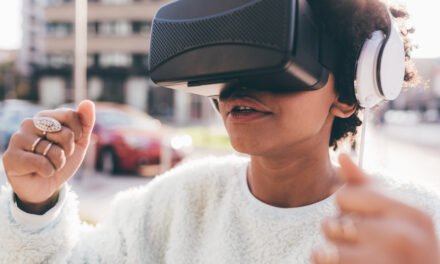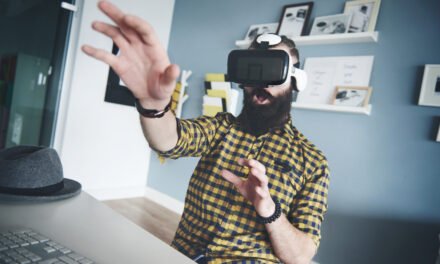The Metaverse has long been confined to science fiction but is now rapidly emerging as a transformative digital frontier. It represents an interconnected virtual universe where physical and digital realities converge allowing users unprecedented opportunities for interaction, creation, and exploration. With advancements in AR VR technology powered by blockchain the potential for innovation seems limitless within this immersive dimension. As we continue down this path towards greater connectivity between our worlds it will be fascinating to see what new possibilities arise from such groundbreaking developments.
The Metaverse is poised to disrupt various industries by providing immersive experiences that were previously unimaginable. Retail stores are already leveraging this technology by allowing customers to try on clothes virtually or explore their products in real time from the comfort of home. Similarly, education has undergone a transformation with students attending lectures in digital amphitheaters and collaborating globally through interactive simulations. The entertainment sector hasn’t been left behind either as gaming evolves into expansive worlds where players can socialize compete and create new narratives together. This transformative potential highlights how each industry can harness the power of the Metaverse for enhanced user engagement and redefined customer relationships.
As we delve deeper into this fascinating realm of virtual reality advancements come with their own set of challenges. One major concern is privacy protection; as personal data becomes more accessible across platforms securing it against breaches or misuse has become crucial. Additionally cybercriminals may exploit vulnerabilities within these environments for malicious purposes leading to significant security threats. Ethical considerations also arise when considering how fair access and representation can be ensured in a digital landscape that mirrors our society at large – requiring collective effort from all stakeholders including tech companies, policymakers, and users alike.

The Metaverse offers an unparalleled opportunity for social interaction through virtual communities that transcend geographical barriers. Users can come together based on shared interests such as gaming or art collectives and form deep bonds with one another despite being physically apart from each other. In these spaces individuals are able to express themselves freely using their avatars while engaging in meaningful conversations or collaborative projects. However, fostering genuine connections amidst anonymity raises questions about identity representation and inclusiveness; ensuring everyone feels welcome is crucial if we want diverse communities thrive within the Metaverse space.

The Metaverse presents an exciting prospect for the future of work. With global events causing a shift in remote collaboration practices traditional video conferencing tools have struggled to create engaging environments that foster creativity and teamwork effectively. However with immersive meeting spaces available through The Metaverses 3D models teams can now collaborate on projects more interactively than ever before possible – potentially revolutionizing corporate culture by strengthening relationships among colleagues who may never meet face-to-face. This technology has immense potential when it comes to enhancing productivity levels while also promoting innovation within organizations worldwide. As such its worth keeping tabs on how this space evolves over time as we move towards a new era of digital transformation across industries globally.
The Metaverse has immense potential but realizing it requires careful navigation through complex opportunities and formidable challenges. By embracing innovation while addressing privacy concerns and ethical dilemmas head on we can create a vibrant digital future that allows us all to thrive – perhaps even reimagining what it means to connect with one another in this brave new world.







